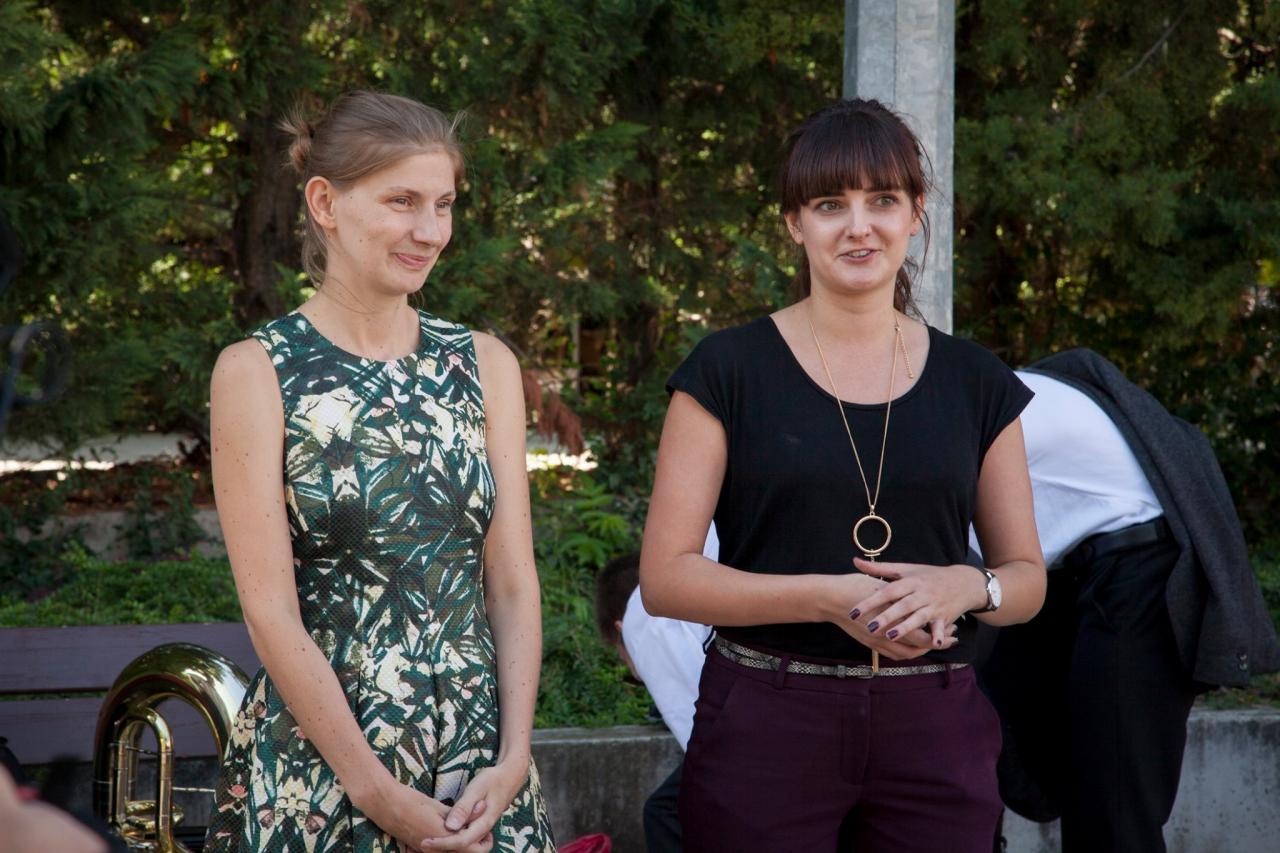
The URBACT Come In Talking Houses/Shared Stories Transfer Network marks a milestone, as the first festivals modeled on the Budapest 100 Open House Weekend were held. In the second part of our series we asked István Elekes (Gheorgheni) and Adrienn Lőrincz (Újbuda) about their first experiences.
The “Come in! We open the city!“ focused on the Armenian heritage of Gheorgheni. How did you manage to reach out to the locals with this?
István Elekes: Some locals are very proud of the Armenian heritage of Gheorgheni. It was easy to reach out to these people. They know history and yet we were able to show them new things. We brought their story closer and made it more tangible. For those who did not know the Armenian heritage, we aroused their curiosity. Many people were curious about the Gheorgheni Armenians because the form was new. Feedbacks proves that the power of novelty can work, even if the subject is known.
What does such a festival add to the local community?
István Elekes: There were 1,500 home visits during the festival. It's a huge number in such a small city. During the day, it was a pleasure to see the sparkling eyes and the bustle of the city. I think we could experience the power of community again. I think this is because many people have been asking us to organize it for next year. Our borders have been proven. It is difficult for the locals to take the initiative, but if someone does, they will follow him enthusiastically. Something has started to move the city and re-energize the community. This is the most important benefit.
Although the festival was held in the same city, it is a very different environment than the Budapest 100 locations. Why did you choose Őrmező?
Adrienn Lőrincz: A guiding principle of Budapest100 is that every building is interesting. Adapting the good practice into a socialist urban landscape gave us a great opportunity to challenge the perceived genericness of panel blocks. The prefabricated buildings in Őrmező are just as unique as the hundred-year-old houses we get to enter during Budapest100: they are and have been home to extraordinary residents, both nationally famous ones (poets, musicians, athletes) and local heroes from all walks of life: teachers, confectioners, entrepreneurs, homemakers. Organizing the festival in Őrmező also provided an opportunity to host a discussion about the socioeconomic and cultural history of panel blocks that touched upon the timely issues of affordable housing, the future of modular constructions and liveable urban environments.
What does such a festival add to the local community?
Adrienn Lőrincz: This year's edition of our festival had a strong focus on storytelling. We created a community exhibition exploring the past of the neighbourhood which displayed the stories and photos residents shared on social media. By highlighting these stories we wanted to foster a sense of belonging: the story of the community is pieced together from the stories of the individuals making up the community. Everbody's experience is valuable, is worth listening to and adds an exciting new perspective to our shared history. Such a festival and exhibition is a great tool to reinforce our common values, to tell ourselves who we are as a community.

